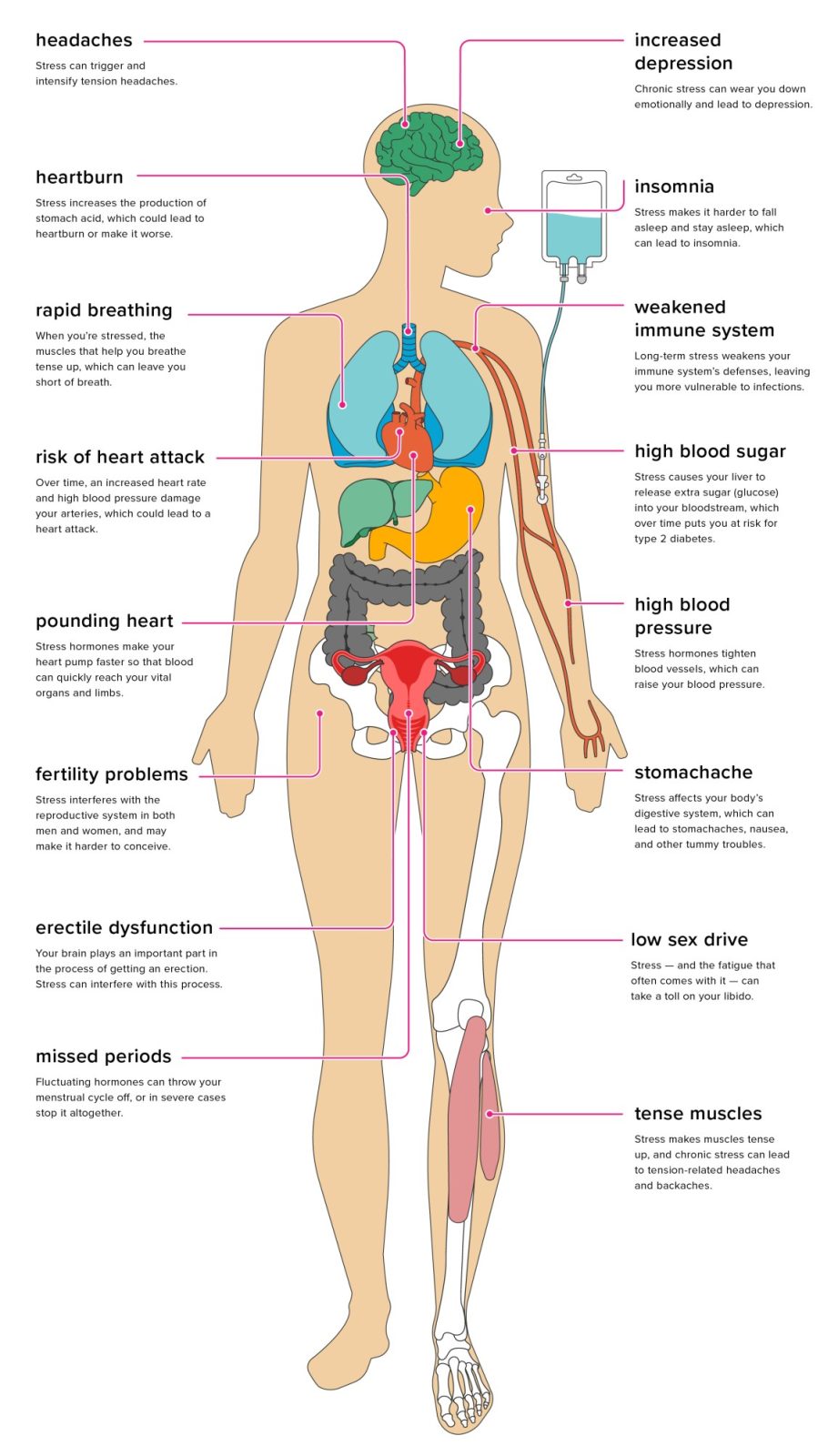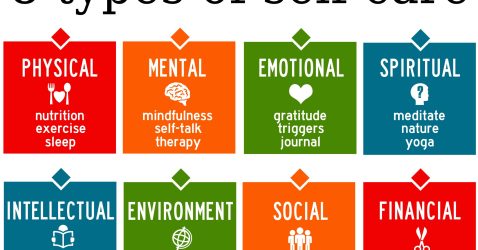What Are The Signs That Someone May Be Experiencing Chronic Stress?
Experiencing stress is a common part of life, but when it becomes chronic, it can have a significant impact on our well-being. In this article, we will explore the signs that may indicate someone is going through chronic stress. From physical symptoms like headaches and fatigue, to emotional changes such as irritability and mood swings, understanding these signs can help you identify and support those in need. So, let’s take a closer look at how chronic stress manifests itself and how we can recognize it in others.
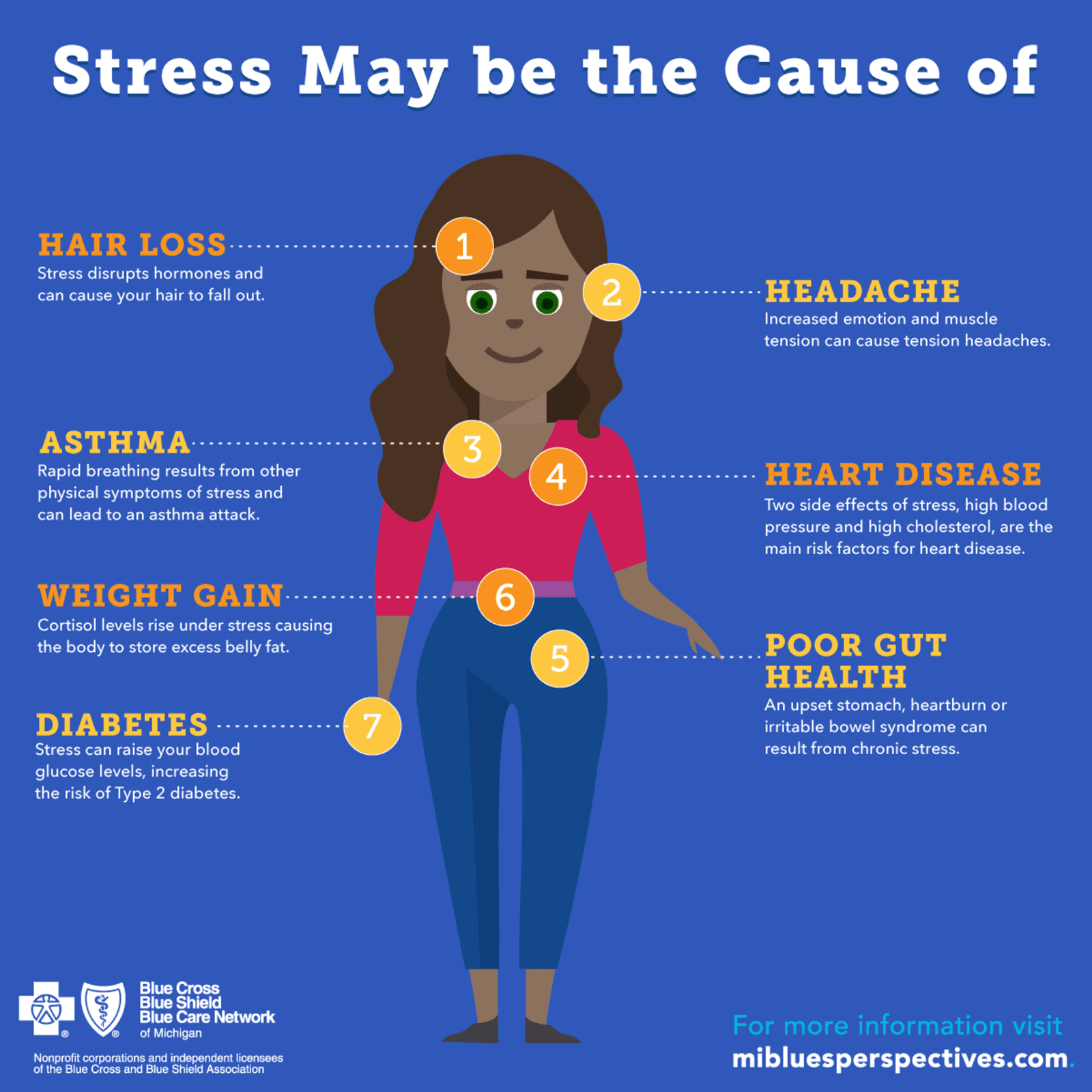
Physical Symptoms
Chronic stress can often manifest in various physical symptoms that you may experience. One common physical symptom is frequent headaches. These headaches can range from mild to severe and can greatly impact your daily life. Another physical symptom of chronic stress is digestive issues. The stress hormone, cortisol, can disrupt your digestive system, leading to problems such as stomachaches, constipation, or diarrhea. Muscle tension is also a common physical symptom of chronic stress. You may find yourself with tense muscles or even experiencing muscle pain or spasms. Additionally, if you find that you are falling ill more frequently than usual, it could be a sign of chronic stress weakening your immune system. Lastly, chronic stress can cause changes in your appetite or sleep patterns. You may experience a decrease or increase in appetite, leading to weight loss or weight gain. Similarly, your sleep patterns may be disrupted, causing insomnia or oversleeping.
Emotional Symptoms
In addition to the physical symptoms, chronic stress can also take a toll on your emotional well-being. One of the most common emotional symptoms of chronic stress is constant worrying. You may find yourself constantly fixating on negative thoughts and feeling anxious about various aspects of your life. Irritability or anger is another emotional symptom that can result from chronic stress. Small frustrations may trigger outbursts of anger, and you may feel on edge more often than usual. Feeling overwhelmed is another emotional symptom that can occur when stress becomes chronic. Tasks that would normally be manageable may suddenly seem insurmountable, leading to feelings of helplessness and stress overload. You may also experience mood swings, feeling happy one moment and extremely sad or irritable the next. Another emotional symptom of chronic stress is a lack of motivation or focus. You may have difficulty concentrating on tasks or finding the drive to complete them.
Behavioral Symptoms
Chronic stress can also impact your behavior in various ways. Increased use of alcohol, tobacco, or drugs can be one behavioral symptom of chronic stress. These substances may be used as a coping mechanism to temporarily alleviate stress, but can lead to harmful long-term effects. Procrastination is another behavioral symptom that may arise when you are experiencing chronic stress. You may find yourself constantly putting off tasks or losing motivation to get things done. Social withdrawal is also a behavioral symptom that can occur. You may feel the need to isolate yourself from others, avoiding social situations and becoming more withdrawn. Changes in your eating or sleeping habits may also be observed. Chronic stress can disrupt your regular routines, leading to overeating, undereating, or changes in your sleep patterns. Neglecting responsibilities is another behavioral symptom that can arise from chronic stress. You may find it difficult to keep up with day-to-day tasks or become forgetful about important obligations.
Cognitive Symptoms
Chronic stress can also affect your cognitive functioning, leading to various symptoms that can impact your thinking and decision-making abilities. Memory problems are a common cognitive symptom experienced by many individuals under chronic stress. You may find it difficult to remember small details or even important information, leading to frustration and further stress. Inability to concentrate is another cognitive symptom that can arise. You may have difficulty focusing on tasks, leading to decreased productivity and increased stress levels. Constant negative thoughts can also be a cognitive symptom of chronic stress. You may find yourself constantly thinking negatively and being unable to see the positives in situations. Poor judgment is another cognitive symptom that can manifest. Under chronic stress, your ability to make sound decisions can become impaired, leading to potentially negative consequences. Racing thoughts is a common cognitive symptom experienced by individuals facing chronic stress. Your mind may feel cluttered, making it difficult to focus or relax.
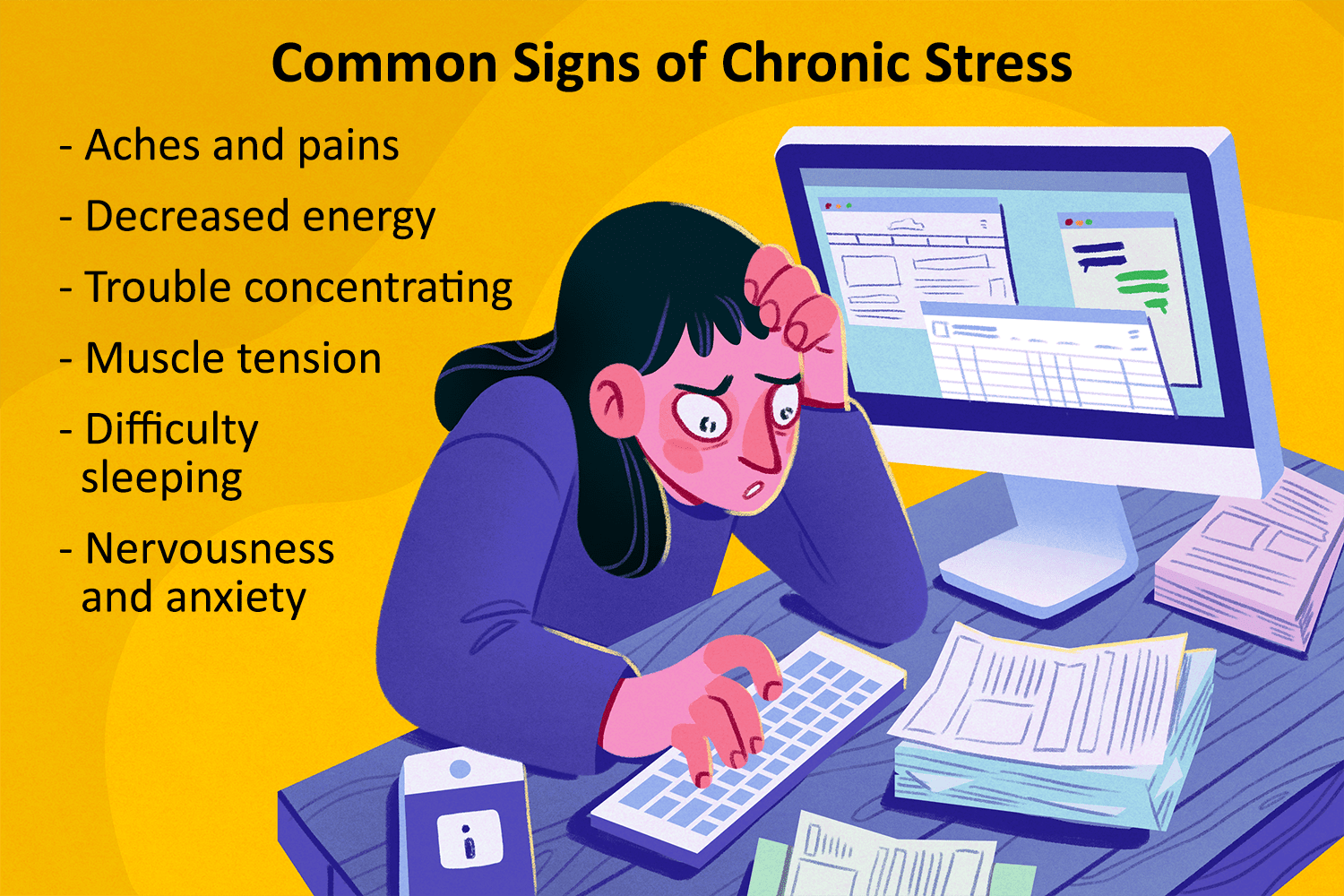
Interpersonal Symptoms
Chronic stress can have a significant impact on your relationships and how you interact with others. Difficulty maintaining relationships is a common interpersonal symptom that may arise due to chronic stress. You may find it challenging to maintain healthy connections with friends, family, or romantic partners, leading to feelings of isolation and loneliness. Speaking of isolation, it is another interpersonal symptom that can occur. You may feel the need to withdraw from social interactions and spend more time alone, further exacerbating feelings of stress and contributing to a cycle of isolation. Difficulty expressing emotions is another interpersonal symptom associated with chronic stress. You may find it challenging to effectively communicate your feelings to others, leading to misunderstandings and conflicts. Lack of empathy is also an interpersonal symptom that can be a result of chronic stress. Your ability to understand and relate to others may diminish, making it difficult to support and connect with those around you. Finally, an inability to relax or enjoy leisure activities can be an interpersonal symptom of chronic stress. Even when engaging in activities you previously found enjoyable, you may struggle to truly relax and find pleasure in them.
Professional Symptoms
Chronic stress can have detrimental effects on your professional life as well. Decreased productivity is a common professional symptom experienced by those facing chronic stress. You may find it challenging to focus and complete tasks efficiently, leading to a decline in your overall productivity. Lack of creativity is another professional symptom that can arise. Chronic stress can hinder your ability to think creatively and come up with innovative solutions, which can be detrimental in many work settings. Difficulty making decisions is also a professional symptom that can be observed. The chronic stress may cloud your judgment, making it harder to make sound decisions and leading to increased stress and pressure. Burnout is a significant professional symptom that can occur when chronic stress is left unaddressed. The constant pressure and demands can wear you down, resulting in exhaustion, detachment, and feelings of being overwhelmed. Increased absenteeism is another professional symptom associated with chronic stress. You may find yourself needing more time off from work due to the physical and emotional toll that stress takes on your overall well-being.
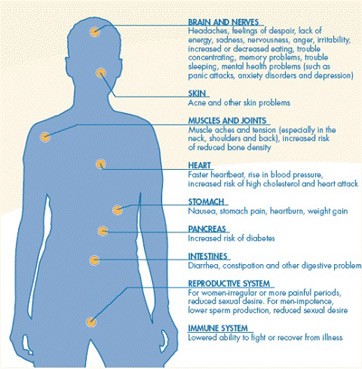
Financial Symptoms
Chronic stress can also have an impact on your financial health. Impulsive spending is a common financial symptom that may arise when you are experiencing chronic stress. You may find yourself engaging in retail therapy or making impulsive purchases as a way to temporarily alleviate stress, despite the potential long-term financial consequences. Impaired judgment in financial matters is another financial symptom that can occur. Chronic stress can cloud your judgment when it comes to making financial decisions, potentially leading to poor choices and regret. High levels of debt can be a result of chronic stress and its impact on your financial decision-making. The stress may lead you to accumulate debt that becomes challenging to manage and repay. Neglected bills or financial responsibilities can also be a financial symptom of chronic stress. It may become difficult to keep track of bills or meet financial obligations, leading to additional stress and potential financial consequences. Excessive worry about money is another financial symptom associated with chronic stress. You may find yourself constantly concerned about your financial situation, leading to increased anxiety and further stress.
Psychological Symptoms
Chronic stress can have a profound impact on your psychological well-being. Feelings of hopelessness are a common psychological symptom experienced by those facing chronic stress. The constant stress and pressure can make it difficult to see a way out or to find hope for the future. Panic attacks can also be a psychological symptom that arises from chronic stress. These intense episodes of fear and anxiety can be debilitating and can occur unexpectedly, further contributing to the cycle of stress. Anxiety or depression is another psychological symptom that can manifest. Chronic stress can lead to the development or exacerbation of anxiety disorders or depressive symptoms, affecting your overall mental health. Suicidal thoughts are a severe psychological symptom that may occur when chronic stress becomes overwhelming. If you are experiencing thoughts of self-harm or suicide, it is essential to seek immediate professional help. Emotional numbness is also a psychological symptom associated with chronic stress. You may find it difficult to experience or express emotions, leading to a sense of detachment from yourself and others.

Physical Health Conditions
Chronic stress can have detrimental effects on your physical health, potentially leading to the development or exacerbation of various health conditions. Increased risk of cardiovascular disease is one physical health condition associated with chronic stress. Prolonged stress can contribute to high blood pressure, heart disease, and other cardiovascular issues. A weakened immune system is another physical health condition that can result from chronic stress. When your body is constantly under stress, your immune system may become compromised, leaving you more susceptible to illnesses and infections. Digestive disorders are also physical health conditions that can arise from chronic stress. Stress can disrupt your digestive system, leading to conditions such as irritable bowel syndrome (IBS) or acid reflux. Chronic pain is another physical health condition that may be exacerbated by chronic stress. Stress can lead to increased muscle tension, which can cause or worsen chronic pain conditions such as headaches, back pain, or fibromyalgia. Hormonal imbalances are also physical health conditions that can result from chronic stress. Chronic stress can disrupt the delicate balance of hormones in your body, leading to issues such as irregular menstrual cycles or hormonal acne.
Long-term Effects
If left unaddressed, chronic stress can have long-term effects on your overall well-being. Weakened cognitive function is one of the long-term effects that may occur. Prolonged exposure to stress hormones can impair your cognitive abilities, affecting your memory, attention, and overall cognitive performance. Impaired memory is another long-term effect that can arise from chronic stress. The constant stress can significantly impact your ability to remember and retain information, leading to difficulties in various areas of life. Accelerated aging is another long-term effect of chronic stress. The constant presence of stress hormones can contribute to premature aging both physically and mentally. Increased risk of mental health disorders is also a long-term effect that may occur. Chronic stress can increase your vulnerability to developing mental health conditions such as anxiety disorders or depression. Finally, reduced quality of life is a significant long-term effect of chronic stress. The impact on your physical, emotional, and mental well-being can greatly diminish your overall quality of life, affecting your relationships, career, and enjoyment of everyday activities.
In conclusion, chronic stress can manifest in various physical, emotional, behavioral, cognitive, interpersonal, professional, financial, psychological, and physical health symptoms. Recognizing these signs can be crucial in identifying and addressing chronic stress to prevent further negative effects on your well-being. It is essential to seek support from professionals and implement strategies to manage and reduce stress levels effectively. Remember that you are not alone, and seeking help is a sign of strength. Take care of yourself and prioritize your well-being by actively addressing and managing chronic stress in your life.
